
Anal fissure - Symptoms. Causes & home remedies
Updated on 02. November 2023
An anal fissure is a tear in the sensitive skin of the anal canal. This is usually a spindle-shaped defect that can cause severe pain. Often, the issue catches the patient off guard. Even though many people suffer from anal fissure, it is not talked about in public or among acquaintances.
Anal fissure Brief overview:
- Causes: Hard stool, high sphincter pressure, infections, diseases
- Symptoms: Stinging & burning during defecation, bright red blood stains during defecation
- Prevention: Healthy diet, exercise, anal sex with lubricant
- Treatment: Cream, for chronic Botulinum toxin A
Symptoms anal fissure
Anal fissure causes local discomfort at the anus and in the immediate vicinity. The pain is particularly severe during defecation. The main symptoms of the disease are:
\- Stinging and burning during defecation
\- Bright red blood spots during defecation
\- Pain, [itching]() and oozing in the anus area
\- Painfully cramped sphincter muscle
If there is a tear in the anal mucosa, the pain may only be present during defecation. In severe cases, the pain can be felt for several hours afterwards. A consequence of this is often a severe cramping of the sphincter muscle. However, this increases the pain and can lead to another tear.
Who can get an anal fissure?
Anal fissure can affect both women and men. Under unfavourable circumstances, it can also affect children and babies.
Causes for anal fissure
The causes of an anal fissure have not yet been conclusively clarified by medicine. However, the risk factors and influences that can trigger an anal fissure are well known.
How does an anal fissure develop?
In medicine, a distinction is made between primary and secondary anal fissures. Primary conditions are fissures that are caused by external influences. Secondary anal fissures occur due to previous diseases.
Primary causes of anal fissure are due to the following risks:
- Hard stool: If the stool is very hard or if there is constipation, then those affected have to push hard.
- Diarrhoea: Constant diarrhoea due to infections or food intolerances irritates the skin at the anus and makes it more susceptible to cracking.
- High sphincter pressure: If the sphincter pressure is too high, the blood supply to the sphincter is poor. This makes the mucous membrane more sensitive and brittle.
- Inflammation: The rarely occurring inflammation of the anal glands of the rectum (cryptitis) can trigger an anal fissure.
Secondary causes of anal fissure are:
- Inflammatory bowel diseases: chronic bowel diseases such as Crohn's disease and ulcerative colitis.
- Infections: AIDS, tuberculosis, syphilis or herpes viruses
- Diseases: Leukaemia, cow's milk allergy or Behçet's type rheumatism
- Medicines: Cytostatics for cancer therapy and isotretinoin as a remedy for severe acne.
- Others: Narrowing of the anal canal (anal stenosis) and operations on the intestinal tract such as [haemorrhoid surgery]().
In the case of a secondary anal fissure of the mucous membrane at the end of the bowel, the pain is often less severe than in the case of a primary fissure.
Can anal fissure be caused by anal sex?
Rupture of the anal mucosa can also occur during anal sexual intercourse. Penetration of the anus by penis or sex toys can lead to overstretching and thus tearing of the mucosa.
Can an anal fissure recur more often?
A tear in the anal mucosa can recur as long as the triggering factors are not stopped. But even if an acute fissure does not heal sufficiently, a chronic development is possible. A characteristic feature of a chronic anal fissure is the alternation between symptoms and freedom from symptoms within several weeks.
Treat anal fissure
When treating an anal fissure, it is first necessary to distinguish between acute and chronic conditions. Since the anal fissure has unfavourable conditions for healing, it usually takes longer to heal than other fissures on the skin surface.
When should I see a doctor for anal fissure?
Blood in the stool should be a cause for attention for an affected person. If other causes for the bleeding cannot be ruled out, a doctor must be consulted. For example, the distinction between anal fissure and haemorrhoids is often difficult for the layperson. If the anal fissure is chronic, it is imperative to see a doctor.
Which doctor is responsible for an anal fissure?
In general, you can first talk to your family doctor about the symptoms. Specialists for this disease are proctologists as specialists for rectal diseases.
How is an acute anal fissure treated?
In mild cases, an acute anal fissure can heal by itself. In this case, the therapy should be supported with a change in diet, home remedies and creams. Although the conditions in the bowel are very unfavourable due to intestinal bacteria, tightness, moisture and mechanical stress, about 75 % of mild fissures heal again with simple caring measures. For more difficult anal fissures or if home remedies do not bring improvement after two weeks, a doctor should be consulted. A therapy consisting of various factors is often chosen to combat the pain:
- regulation of bowel movements
- locally applied ointments
- local treatment of the sphincter muscle
What influence does diet have on anal fissure?
Because hard bowel movements can cause anal fissures, diet is of crucial importance in the treatment. Light laxatives are usually recommended as an immediate remedy. Psyllium husks are often used to regulate bowel movements in the case of anal fissure. When they come into contact with liquids, they swell up and give the stool the required soft but still formed consistency. Because of the low taste, psyllium husks are often taken with yoghurt, milk or soups. A diet rich in fibre and vitamins with little fat is important for stool regulation.
Which ointment is supportive for anal fissure?
To make defecation less of a problem, painkilling ointments are often recommended for local application. Ointments with the active ingredient lidocaine are suitable for local anaesthesia. Creams with tanning agents such as [witch hazel]() have a healing and anti-inflammatory effect. In addition, ointments with calcium antagonist have a relaxing effect on the sphincter muscle and thus promote healing. These products are available over-the-counter in pharmacies.
What is used for local therapy of the sphincter?
For acute anal fissure, ointments with nitroglycerin or calcium antagonists are well suited for local therapy. These active substances relax the sphincter muscle so that it can also be better supplied with blood again. This allows the mucous membrane at the tear to heal better. These ointments can cause side effects and therefore require a prescription.
Can I treat an anal fissure myself?
If it is a mild case of acute anal fissure, it can initially be treated by oneself. Severe and chronic manifestations should at least be discussed with a doctor. This also applies if your own treatment of an anal fissure does not show any improvement within two weeks.
How long does an acute anal fissure last?
An acute anal fissure lasts about four to six weeks with good care. During this time, the symptoms should continuously subside. If the symptoms have not subsided after eight weeks, it is probably a chronic anal fissure.
What home remedies help with anal fissure?
For anal fissure, home remedies can both relieve pain and promote healing.
- Sitz baths are a proven remedy for anal fissure. When witch hazel is added, they have an anti-inflammatory effect and reduce [itching](). At the same time, the home remedy has an astringent effect, which causes the mucous membranes to contract. [Witch hazel\]\(/enchanted nut/) can also be combined with antispasmodic camomile and wound-healing oak bark.
- For anal fissure, anti-inflammatory olive oil is also recommended as a home remedy. Olive oil is applied to the fissure with a finger or a cotton swab. The oil is often recommended in combination with beeswax and honey. This can stop bleeding and reduce swelling.
- The native comfrey contains the active substance allantoin. This substance promotes wound healing and cell regeneration. As a locally applied compress, comfrey can additionally reduce pain.
- Adjust your sitting position: Avoid sitting on hard surfaces for long periods of time and use a cushion or seat ring to reduce pressure on the anus area.
- Avoid irritating substances: Avoid hot spices, alcoholic drinks and highly seasoned foods as they can further irritate the irritated mucous membrane.
- Observe hygiene: Keep the anal area clean, but avoid excessive rubbing or use of rough toilet paper. Wet wipes or gentle toilet paper can be used.
- Cooling with ice packs: Place an ice pack in a cloth and gently apply to the affected area to relieve pain and swelling.
- Pain-relieving ointments: Use over-the-counter ointments or creams that contain local anaesthetic or pain-relieving agents to provide temporary relief.
- Relaxation techniques: Practice relaxation techniques such as deep breathing, meditation or yoga to relieve stress and reduce tension in the body.
- Get enough rest and sleep: Give your body enough time to recover to help the healing process.
- Avoiding excessive pushing: Try not to push too hard during bowel movements to avoid further irritation of the anal fissure.
- Wearing loose clothing: Avoid tight clothing, especially around the anus, to minimise friction and irritation.
What else can be done to speed up the healing of an anal fissure?
A good help against a cramped sphincter muscle in the case of an anal fissure is an anal dilator. The anal dilator is used regularly to gently widen the anus against cramped muscles. This should be done at least once a day for about five to ten minutes so that the treatment is successful. Great importance must be attached to hygiene during an anal fissure. After defecation, cleansing with running water using a bidet or podusche is helpful. If moist toilet paper is used, it must not contain essential oils. Alternatively, baby wipes can be used. In addition, anal sex should be avoided if you have an anal fissure.
How is anal fissure in babies treated?
The main cause of anal fissures in babies and children is constipation. In babies, this is often seen when switching from milk to porridge. Children, on the other hand, often forget to drink during play. First, the constipation should be treated urgently. However, laxatives should not be used for this purpose, but natural remedies such as psyllium husks. The child's bottom should be washed several times a day with a tannin-containing solution such as [witch hazel extract](). The fissure is treated with wound-healing cream with panthenol or zinc. Ointments against anal fissures for adults must not be used without consulting a doctor. If there is no improvement within a few days, a paediatrician should be consulted immediately.
Why should I go to the doctor for a chronic anal fissure?
The anal fissure keeps coming back? Germs constantly enter the body through the open wound in the rectal area. The cramped sphincter muscle often prevents incomplete emptying of the bowels. If the anal fissure takes a chronic course, healing is more difficult. Despite the delayed healing, healing tissue is constantly formed by local hormones. This is noticeable by external thickenings or wrinkles in the skin in the anal area, which are called outpost folds or guardian mariske. In an untreated chronic anal fissure, inflammation can work its way through the anal verge until a fistula is evident. These consequences of a chronic anal fissure should be avoided by seeing a proctologist in time.
How is chronic anal fissure treated?
In addition to stool regulation, chronic anal fissure is treated with ointments to relax the sphincter muscle. If this does not bring about an improvement, local injections with botulinum toxin A can greatly relax the sphincter muscle. However, this treatment must be paid for by the patient. At the same time, botulinum toxin has such a strong effect that temporary faecal incontinence occurs in about 10% of patients. If this does not bring about an improvement and the individual suffering pressure is high, surgical methods or laser treatments should be used.
How is anal fissure surgery performed?
There are several options for anal fissure surgery. Today, operations that lead to permanent faecal incontinence are no longer performed. Long-term dilatation of the end of the bowel or partial severing of the sphincter muscle no longer need to be feared. The most common methods are
- classic fissurectomy: The surgeon flattens the [scar\]\(/scar/) with the help of an electronic scalpel. The excess wound tissue and fistulas are removed. This makes it easier for the flat wound to heal. The operation is done under general anaesthesia.
- Laser-assisted fissurectomy: Analogous to the classic fissure correction, the laser treatment flattens the scar and removes excess tissue. The treatment is carried out with a diode laser. The laser stops bleeding immediately and the surgeon has a better view of the wound. The advantages of laser therapy are that it is gentle on the tissue and stimulates the healing of the tissue.
- Low-level laser therapy: LLL treatment is used to stimulate the self-healing powers. Electromagnetic energy is applied to the injured area by the laser. This energy improves the availability of adenosine triphosphate, which controls energy-producing processes in the cells. Healing is enhanced by the increased production of the body's own defence cells. LLL therapy relieves pain and carries minimal risk of infection. This anal fissure surgery can be performed on an outpatient basis.
How can I support healing after anal fissure surgery?
At the end of the treatment, the wound is not sutured. Therefore, it is urgent to pay attention to proper hygiene. After defecation, the wound must be cleaned under running water. This can be done using a bidet, shower toilet or sitz bath. Moist toilet paper or baby wipes are suitable when travelling. After the first few days, the wound can be treated with a wound cream containing panthenol or zinc. Local or systemic painkillers can be chosen for the pain after the treatment. However, the attending physician should be consulted about this.
How long does healing take after anal fissure surgery?
A classic operation with the electric scalpel and general anaesthesia requires a hospital stay of about three days. After about ten days, healing begins and is completed within four to six weeks. The inability to work lasts two weeks. Since laser therapy stimulates wound healing, the tear heals faster.
Prevent anal fissure
There are several ways to prevent anal fissure. In some cases, positive effects can be achieved by simple changes in habits.
- Diet: A diet rich in fibre, vitamins and avoiding a lot of fat and unhealthy carbohydrates promotes soft stools or diarrhoea. Vegetables, legumes, fruit and potatoes are a good basis for this.
- Drink: At least 1.5 to 2 litres of water or unsweetened drinks are important for hydration.
- Exercise: Exercise promotes blood circulation and also has an effect on a sluggish bowel.
- Sex: A lubricant should always be used during anal sex.
Can an anal fissure heal by itself?
Yes, especially if it is acute (less than six weeks old). Healing can be supported by a balanced diet, sufficient fluid intake and stool softeners.
Can I do sport despite an anal fissure?
Generally yes, unless it causes extra pain or discomfort. Some people find that certain exercises, such as cycling or weight lifting, can make symptoms worse. It is important to listen to your body.
Can anal fissures cause recurrences?
Yes, anal fissures can recur, especially if the original causes (such as chronic constipation or diarrhoea) are not addressed. If anal fissures occur frequently, you should see a doctor to investigate possible underlying conditions.
Are anal fissures contagious?
Anal fissures themselves are not contagious, as they are usually caused by mechanical stress (such as constipation or diarrhoea) and not by an infection. However, if an infection is the cause of an anal fissure, that infection can be contagious.
Are there exercises that can help relieve or prevent anal fissures?
Regular exercise can improve digestion and prevent constipation, which in turn helps prevent anal fissures. Pelvic floor exercises can also help strengthen the anal muscle and reduce the risk of fissures.
Anal Fissure Home Remedy Olive Oil
Olive oil is often used as a home remedy for anal fissures. It has anti-inflammatory properties and can help relieve pain and promote healing. It is applied gently to the affected area. If symptoms persist, a doctor should be consulted.

Hameli's vision
Go to Vision
Vaginal Fungus - Symptoms, Causes & Treatment
Go to Vaginal mycosis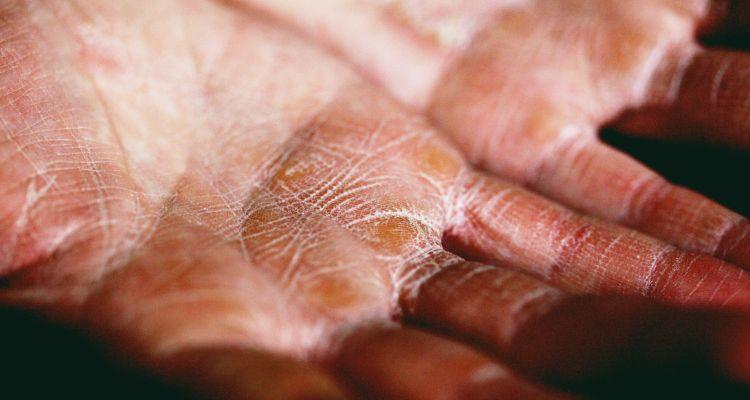
Dry skin - What helps against it?
Go to Dry skin
Witch hazel - varieties, cutting, effect, & products
Go to Witch Hazel
Recognise and treat coccygeal fistula
Go to Coccygeal fistula
Anal fistula - symptoms, causes & treatment
Go to Anal fistula
Labial tear - Symptoms, Causes & Treatment
Go to Labial tear
Intertrigo - Cause, symptoms and treatment of the skin wolf
Go to Intertrigo
Anal abscess: symptoms, recognition, causes & treatment
Go to Anal abscess
Chickenpox - symptoms, vaccination, infection and treatment | Hamelis
Go to Chickenpox
Seborrhoeic Eczema - Symptoms, Causes & Treatment
Go to Seborrhoeic eczema
Vaginal dryness - symptoms, causes & treatment
Go to Vaginal dryness
Hives - Cause, symptoms and treatment
Go to Hives
Hamelis experts
Go to Experts
Rose lichen - symptoms, causes and treatment
Go to Rose lichen
Scars - treatment and removal
Go to Scar
Ringworm: Symptoms, Causes & Treatment
Go to Ringworm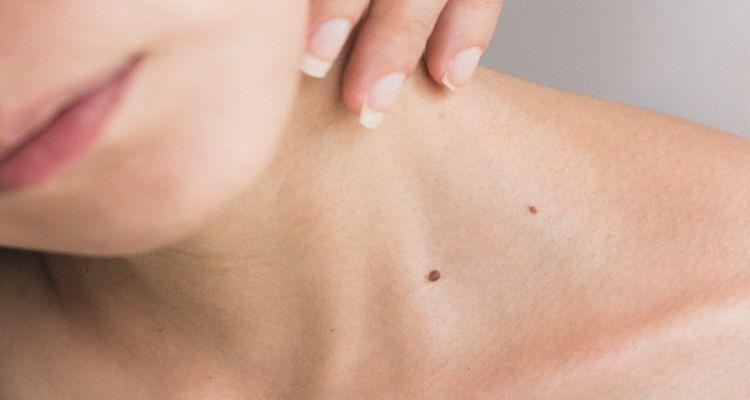
Scabies - symptoms, cause and treatment
Go to Scabies
Treat anal eczema sustainably
Go to Anal eczema
Eczema - symptoms, causes and treatment
Go to Eczema
Contact allergy - symptoms and treatment
Go to Contact allergy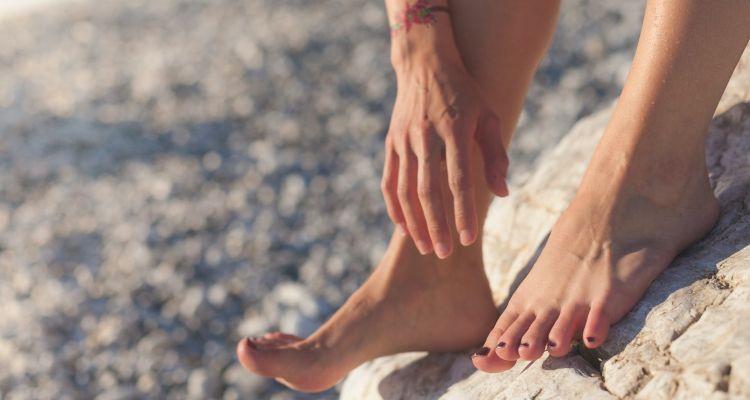
Treat stubborn nail fungus
Go to Nail fungus
Crabs - Intimate area, symptoms & treatment
Go to Crabs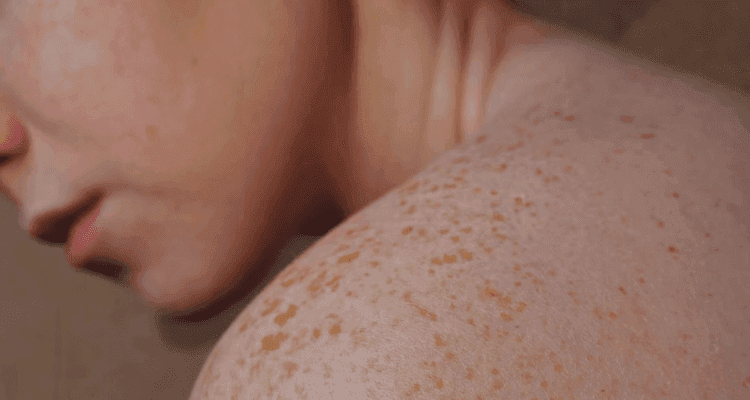
Pruritus - Causes, symptoms and treatment
Go to Pruritus
Rosacea on the face - symptoms, causes and treatment
Go to Rosacea
Perioral dermatitis - symptoms, treatment & home remedies
Go to Perioral dermatitis
Skin fungus - cause, symptoms and treatment
Go to Skin fungus
Perineal tear - origin, degrees & causes
Go to Perineal laceration
Anal prolapse: symptoms, causes, treatment
Go to Anal prolapse
Skin rash - causes and treatment
Go to Skin rash
Genital herpes - woman, man & symptoms
Go to Genital herpes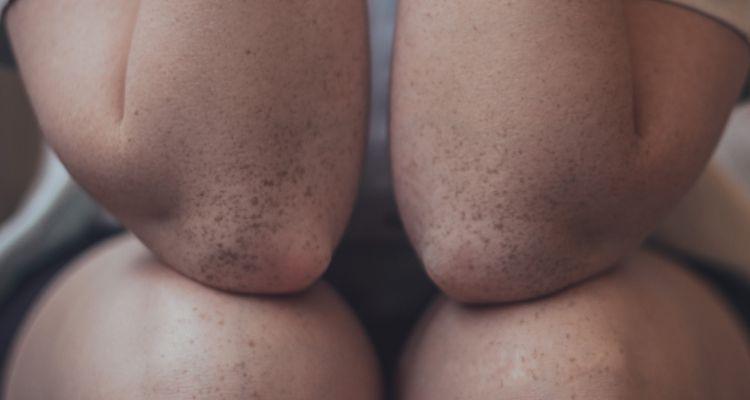
Atopic dermatitis in children, adults and pets
Go to Atopic dermatitis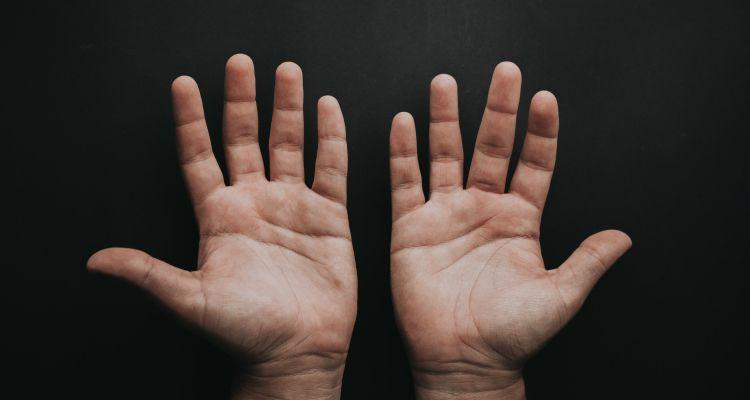
Angioedema - symptoms, causes and therapy
Go to Angioedema
Nappy dermatitis - cause and treatment of sore baby bottom
Go to Diaper rash
Sunburn - symptoms, duration & what helps?
Go to Sunburn
